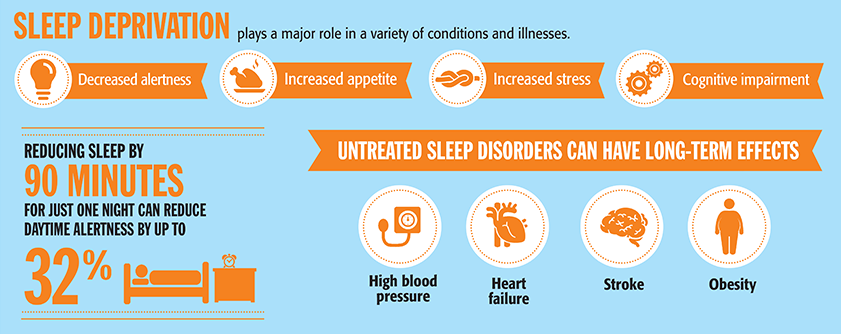Why are Sleep Debts Common in Alaska?
Sleep debts are a term that refers to the accumulated sleep deprivation that you experience. It's not as simple as just getting a certain amount of sleep per night and catching up on the missed hours. The concept of sleep debt is useful but can be misleading. It highlights the consequences of not getting enough sleep, namely sleep deprivation, and the need to adjust your sleep patterns to restore a well-rested state. However, repaying your sleep debt is not like repaying a loan.
In Alaska, sleep debts are more common due to the extreme conditions we experience. The long hours of daylight in summer and extended periods of darkness in winter, along with potential lifestyle changes in each season, put us at higher risk for developing sleep disorders or exacerbating existing ones, leading to sleep deprivation. These disorders can include insomnia, restless leg syndrome, parasomnias, and circadian rhythm disorders.
Understanding how to properly repay your sleep debt is crucial, as is recognizing the causes and effects of sleep deprivation. By knowing the recommended amount of sleep you need based on your age and individual needs, you can establish healthy sleep patterns and gradually eliminate the effects of sleep debt. It's important to avoid the misconception that oversleeping can compensate for sleep debt. Instead, focus on consistent, restful sleep over time.
In Alaska, there are specific considerations in different seasons to promote good sleep habits and repay sleep debt effectively. For example, using blackout curtains in summer, being mindful of shift work sleep disorder during shift work, utilizing white noise machines to drown out increased traffic noise, and incorporating light therapy and exercise in winter can all contribute to better sleep.
Recognizing the symptoms of sleep deprivation is also crucial. From decreased performance in various aspects of life to chronic fatigue, sleep attacks, morning headaches, sexual dysfunction, memory and concentration issues, anxiety, depression, and medical complications, the consequences of sleep deprivation are far-reaching.
If you're dealing with chronic sleep problems or sleep deprivation in Alaska, reach out to one of our sleep specialists for assistance. Start by taking our free online sleep test to gain further insight into your sleep patterns and needs.
How Much Sleep Do We Need?
The amount of recommended sleep you should be getting depends on your age. The National Sleep Foundation recommends the following, and you will find the same or very similar recommendations across different sources [National Sleep Foundation]:
- <1 year: 12-17 hours per day (more sleep for newborns than toddlers)
- 1-2 years: 11-14 hours
- 3-5 years: 10-13 hours
- 6-13 hours: 9-11 hours
- 14-17 hours: 8-10 hours
- 18-65: 7-9 hours
- 65+: 7-8 hours
Also, remember that you are individual with unique needs and lifestyle habits. The above list is a guideline, and it’s up to you to decide if you are a 40 year old who feels good after 7 hours of sleep or after 9 hours of sleep.

Not getting enough sleep leads to a number of health conditions
Figuring out how much sleep makes you feel rested is called baselining and is important for understanding how you can avoid sleep deprivation and/or properly “repay” your sleep debt.
Also keep in mind that sleeping patterns change as we age, and as you get older you may find that you need to supplement your nighttime sleep with naps in order to get the requisite sleep.
How to Repay and NOT Repay Your Sleep Debt
Contrary to what you might expect, you cannot oversleep (i.e., binge sleep) to repay your sleep debt. While getting some extra sleep is good, oversleeping is generally not recommended. A common way people use binge sleeping to try and repay their sleep debt is [note, don’t do this!]:
- You know you need 8 hours of sleep to feel rested
- Monday through Friday you get 6-7 hours of sleep per night
- Your “sleep debt” is about 6 hours
- On Friday night and Saturday night, you sleep about 11 hours each night, supposedly canceling your debt
Unfortunately, this is not how it works. Sleep studies show that getting one or two long nights of sleep does not remove the effects of sleep deprivation. After a night of very long sleep, you might feel better, but the effects of sleep deprivation will continue. Or, on the other hand, oversleeping might actually make you feel more tired and lethargic.
The actual way you repay your sleep debt is by:
- Establishing a healthy pattern of sleep over time
- Getting consistent, restful sleep until the effects of sleep deprivation are gone
If you find that you do not get enough sleep during the week and have a sleep debt by the time the weekend rolls around, what you should do is:
- Get extra sleep on the weekend without oversleeping
- Get enough or a little bit of extra sleep every day the following week
Some things in Alaska that we have to pay particular attention to in different seasons in order to set ourselves up for good sleep habits and sleep debt repayment are:
- (Summer) Get blackout curtains
- (Summer) Pay attention to shift work sleep disorder if you do shift work
- (Summer) Get white noise machine to drown out increased traffic noise
- (Winter) Use light therapy
- (Winter) Get exercise
Of course, recognizing that you have a sleep debt involves knowing how much sleep you should be getting and recognizing the symptoms of sleep deprivation.
Symptoms of Sleep Deprivation
Sleep deprivation causes lower performance physically, emotionally, and mentally. Common symptoms include [SleepEducation]:
- Lower performance in all areas of life (work, relationships, athletics)
- Chronic daytime fatigue
- Sleep attacks – sudden onset of sleep-readiness at an during the day
- Morning headaches
- Erectile dysfunction
- Reduced sex drive
- Memory trouble
- Concentration problems
- Brain fog
- Headaches
- Anxiety
- Depression
- Mood troubles
- Chronic irritability
- Medical complications
If you live in Alaska and deal with chronic sleep problems or sleep deprivation, please reach out to one of our sleep specialists. Start by taking this free online sleep test.


